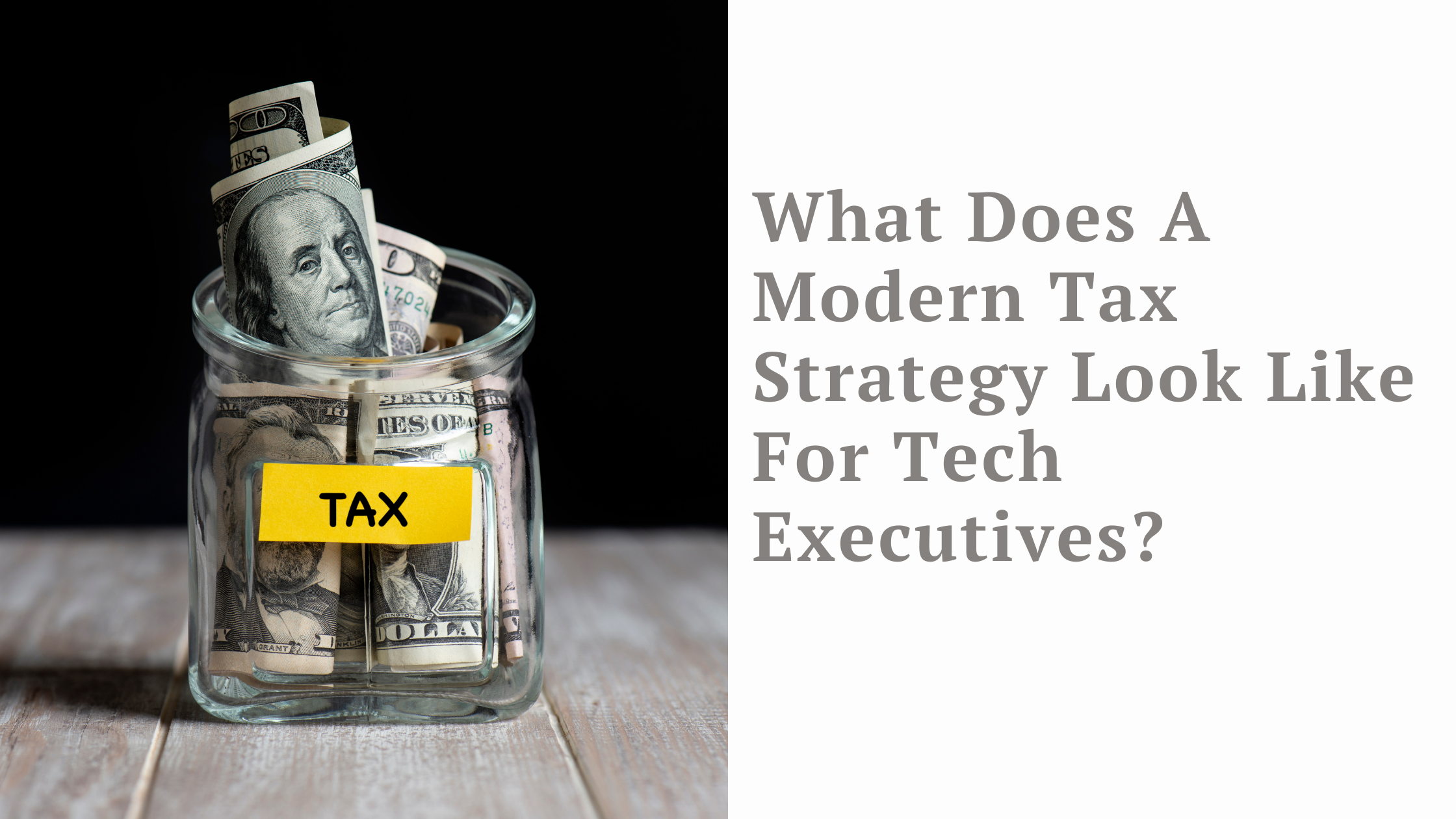Is Filing Tax Returns The Same As Tax Planning?
True Root Financial is a fee only financial advisor and financial planner based in San Francisco, CA. We serve clients across the globe.
Spoiler alert: it’s not. And mistaking one for the other could cost you tens of thousands of dollars.
Imagine walking into a movie theater halfway through a film and trying to change the ending. That’s what filing your tax return is like: reporting what’s already happened, after it’s too late to make changes.
If you are a tech professional interested in learning how we can help you claim your financial independence by investing wisely, minimizing taxes, and maximizing your equity compensation, please book a no-obligation call here.
Now imagine you get to help write the script in advance, decide the plot twists, and choose a more favorable ending. That’s tax planning. And for many tech professionals in the San Francisco Bay Area, this distinction isn’t just academic, it’s financial survival.
Watch the video below to uncover the strategic tax planning moves that can save you tens of thousands especially if you’re dealing with RSUs, ISOs, ESPPs, or stock options.
Key Takeaways
- Filing is backward-looking. Planning is forward-thinking
- Smart tax planning can save you tens or even hundreds of thousands over time
- Equity compensation, like RSUs, ISOs, and ESPPs, requires special planning to avoid surprise bills
- Tax planning helps you feel in control, not caught off guard at tax time.
The Most Overlooked Piece of Financial Planning
Let’s talk about one of the most underestimated parts of financial health: taxes.
If you’re earning a six-figure salary, receiving RSUs, participating in your company’s ESPP, and maybe even dabbling in crypto or angel investing, chances are, taxes are your single biggest lifetime expense.
And yet, most people confuse tax filing with tax planning.
They think, “I have a great CPA. They file my taxes every April. I’m covered.”
Here’s the truth:
Tax filing is compliance. Tax planning is a strategy.
Looking Back vs. Looking Forward
Your tax return is a summary of the past. It reports what has already happened to your income, your stock sales, and your deductions. It’s historical. Tax planning, on the other hand, is future-focused. It’s where the real money-saving magic happens.
At True Root, we work with clients not just to report their taxes, but to design a tax strategy tailored to their income, equity compensation, goals, and timelines.
Here’s how that plays out.
Real Story: $20,000 Saved by Timing a Stock Sale
One of our clients planned to sell a large batch of vested RSUs in December. On paper, it looked fine until we ran their full-year tax projection.
By waiting until January, just a few weeks later, they could shift that income into the next tax year and avoid being pushed into a higher federal tax bracket.
Result? A $20,000 reduction in their tax bill. No extra work. Just smarter timing.
That’s what tax planning looks like: adjusting your actions before they show up on a tax return.
Another Case: The $70,000 AMT Surprise
Now let’s talk about ISOs.
One prospective client came to us after exercising a large batch of incentive stock options. They didn’t sell the shares, thinking they were playing it smart.
What Didn’t They Realize?
They had just triggered the Alternative Minimum Tax (AMT), to the tune of $70,000. That’s money owed before they sold the stock.
We now help clients model ISO exercises so they don’t get hit with nasty surprises. Sometimes we suggest spreading the exercise over multiple years. Other times, we’ll model out the break-even points to see when it’s most tax-efficient.
Why This Matters So Much for Tech Professionals
If you’re working in tech, especially in places like San Francisco or Silicon Valley, you know the compensation story isn’t simple. Your income might include:
- Salary and bonuses
- Restricted Stock Units (RSUs)
- Employee Stock Purchase Plans (ESPPs)
- Stock options (ISOs or NSOs)
- Investment gains from early-stage startups or crypto
- Rental income or side projects
Each of these comes with its own tax consequences. And those consequences change depending on when and how you act.
This is why proactive tax planning isn’t optional; it’s essential.
The Right Questions to Ask (That a Tax Preparer Probably Won’t)
When we work with clients, here are some of the questions we explore together:
- What tax bracket are you in now, and where will you be next year?
- Can we spread your income or gains across multiple years to reduce taxes overall?
- Are there deductions you’re missing?
- Should we accelerate income (or delay it)?
- Is now a good time to convert to a Roth IRA?
- Would a donor-advised fund help you bundle charitable giving?
- Can we harvest some tax losses to offset gains this year?
These aren’t questions your CPA is likely to ask during a 30-minute tax appointment in March.
They’re questions a financial advisor and tax planner ask months, if not years, in advance.
Think of Taxes Like a Toll Road
Here’s a metaphor we often share with clients:
Taxes are like a toll road. Everyone pays something to get through. But with the right map, you can choose the least expensive lane and still get to the same destination. The IRS isn’t trying to trip you up. The tax code is full of ways to minimize your tax burden, but you have to know the routes.
From Dodgeball to Chess
One client once told us that tax season used to feel like dodgeball: “Numbers flying at me. No idea where they came from. Just trying to survive.”
After working with us for a year, that same client said it now feels like chess:
- “I know what moves are coming. I feel in control.”
- That shift from reaction to strategy is the heart of tax planning.
Powerful Tools You Might Not Be Using
Here are some of the most effective tools we use in tax planning for tech professionals:
1. Tax-Loss Harvesting
Selling investments at a loss to offset capital gains and reduce your tax bill.
2. Roth Conversions in Low-Income Years
If you’re taking a sabbatical or between jobs, it might be the perfect year to convert pre-tax retirement money to Roth and pay minimal tax.
3. Charitable Giving Strategies
Using donor-advised funds (DAFs) to bundle charitable gifts and receive large deductions in one year, especially helpful in high-income years.
4. Timing RSU or ESPP Sales
Spreading out equity sales over multiple tax years to stay in a lower bracket.
These tools are most effective before the end of the tax year, again, planning, not filing.
Filing Keeps You Compliant. Planning Builds Wealth.
To be clear, we’re not knocking CPAs. Filing your taxes correctly is absolutely important.
But it’s only one piece of the puzzle.
If you’re a tech professional in the Bay Area earning $300K+ a year, your tax bill could be six figures annually. And over your career? We’re talking millions. That’s why proactive tax planning can be one of the most valuable services a financial advisor provides.
Your Next Steps: Ready to Move From Tax Filer to Tax Strategist?
If you’re tired of tax season feeling like a guessing game, it’s time to take control. At True Root, we specialize in working with tech professionals in the Bay Area to turn equity compensation and income into lasting wealth, starting with smarter tax moves.
Let’s stop reacting and start planning. Book a free consultation today and let’s map your tax future together.









Leave a Reply
Want to join the discussion?Feel free to contribute!